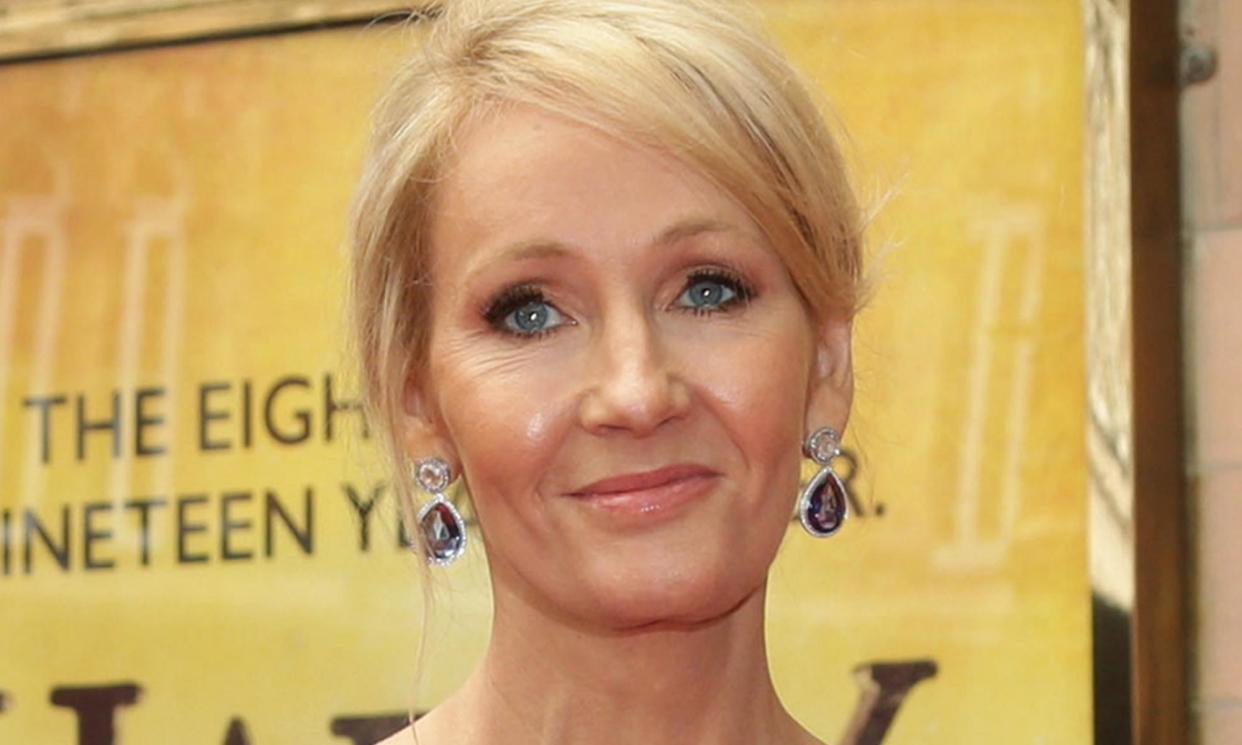JK Rowling agrees to meeting with Labour about gender transition policy

JK Rowling has agreed to a meeting with Labour after Rachel Reeves said the party would be “really happy” to “give her assurances” over its plans to change the process through which people can legally change gender.
Speaking in Scotland, Reeves said protection for women-only spaces would “absolutely stay”, adding: “We’re not going to be changing anything around biological sex … We’re really happy to talk to JK Rowling to give her assurances about that.”
But Rowling said the meeting was conditional on Labour first meeting a series of groups from across the UK that she supported.
The shadow chancellor made the offer to meet the author and former Labour donor on Monday, after Rowling said she would “struggle to support” the party in next week’s general election.
Labour has reiterated its pledge to “modernise” the process by which people can change gender, removing what it termed outdated elements of the process, such as requiring consent from a spouse. The requirement to present evidence showing that a person has lived as their new gender for two years would be replaced with a “reflection period” lasting the same amount of time.
The plan is largely the same as that outlined last year by Labour’s national policy forum, but was reported by the Times after an article for the paper on Saturday by Rowling expressed her unease with the party’s position.
The national policy forum set out the proposal for changes, including replacing a panel of doctors and lawyers who give approval for a gender recognition certificate (GRC), the legal basis for gender to be changed. Under Labour plans, this would be done by one doctor with a specialism in gender issues. One possibility had been to use GPs for this part of the process, but that would no longer happen.
Rowling responded to Reeves’s invitation on X, saying: “I’ll be happy to meet after [the groups] Keep Prisons Single Sex, Lesbian Labour, Women’s Rights Network, Woman’s Place UK and LGB Alliance have been given in person meetings with the Labour leadership.”
She added: “Asking on behalf of female survivors of domestic violence and gay people who don’t subscribe to gender identity ideology, I’d also like to know whether Angela Rayner still considers the last two organisations hate groups.”
Speaking to the Sun on Monday evening, Starmer echoed Reeves’s desire for the party to have a meeting with Rowling.
“I respect her,” he said of the author. “She has made some really important points. I’d welcome that discussion because I do think we have made huge progress on women’s rights under Labour governments, and equality, massive progress. There’s more work to be done if we are privileged to come in to serve this country.”
One of the biggest changes would be to remove the two-year documentation trail needed to seek a GRC. Under current rules, people are asked to show evidence “from a variety of different sources” over the two-year period, such as official documents, payslips and letters, which give their new name or title, or their gender.
This would be replaced with the reflection period and the need for approval from a spouse would be scrapped.
The party said while it would not want to change the way doctors diagnosed gender dysphoria, it would seek to make this a medical process, not one that was politicised.
A Labour spokesperson said the party would “modernise, simplify and reform the intrusive and outdated gender recognition law to a new process. We will remove indignities for trans people who deserve recognition and acceptance, while retaining the need for a diagnosis of gender dysphoria from a specialist doctor, enabling access to the healthcare pathway.”
The statement said Labour backed protections for women within the Equality Act and would “continue to support the implementation of its single-sex exceptions”.
It added: “Britain is a reasonable and tolerant society where most people know that there are a small number of individuals who do not identify with the gender that they were born into. Labour’s plans will protect single-sex spaces, treat everybody with respect and dignity, maintain the existing two-year timeframe for gender recognition, and ensure that robust provisions are in place to protect legitimate applications.”
It was also reported on Monday that Labour would seek to ban conversion therapy if it wins power in July. The Times said the party would review legislation that had originally been drawn up by the Conservatives, despite warnings over the potential risks of a full ban.
Speaking to reporters after the Scottish Conservative manifesto launch, Rishi Sunak said plans by Keir Starmer’s party to reform the gender recognition system would “undo all the progress that we’ve made on this issue, undermine the protections that we’ve put in place for women’s rights, safety and security, and create loopholes that will be exploited by bad-faith actors”.
He added: “Fundamentally, I don’t think that Labour have ever properly cared or understood this issue, and that’s crystal clear from his track record.”
Sunak also said he remained “energised” with 10 days to go before the election and that he would fight just as hard as he had in the leadership contest against Liz Truss, when he was likewise the underdog.
Writing in the Times, Rowling, a former Labour member and donor, said she would struggle to vote for the party “as long as Labour remains dismissive and often offensive towards women fighting to retain the rights”. She said she had a “poor opinion” of Starmer’s character and claimed he was “dismissive and often offensive” of women’s concerns about sex-based rights.


